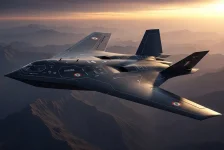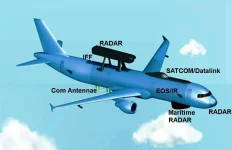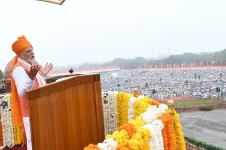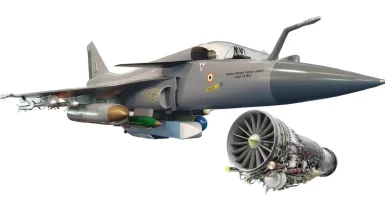- Views: 46
- Replies: 1
In a landmark development for its aerospace and defence sector, India is moving forward with a plan to develop a new-generation jet engine with 100% Intellectual Property Rights (IPR).
The powerful 120kN thrust class engine will be developed in collaboration with French aerospace giant Safran, marking a pivotal step in India’s quest for self-reliance in critical military technology.
The new engine, capable of generating approximately 12 tons of thrust, is being developed primarily to power India's future fleet of advanced fighter aircraft.
It is slated to be the powerplant for the Mk2 version of the Advanced Medium Combat Aircraft (AMCA), the nation’s fifth-generation stealth fighter currently under development.
Mastering jet engine manufacturing is considered a major technological achievement, as it is a highly complex and guarded field globally.
A crucial aspect of this collaboration is that India will retain full ownership and control over the engine's design, manufacturing technology, and future upgrades.
This complete IPR ensures that the nation will not be dependent on foreign nations for servicing, maintenance, or modifications, thereby strengthening national security. This move also positions India to potentially export advanced aeronautical systems in the future.
The project has received official government sanction, indicating firm financial and political backing. The development will be spearheaded by India’s Defence Research and Development Organisation (DRDO), with its Bengaluru-based Gas Turbine Research Establishment (GTRE) leading the design efforts.
The partnership with Safran is expected to involve a complete transfer of technology, enabling Indian engineers to absorb and build upon the sophisticated knowledge required.
Beyond the design phase, the initiative aims to cultivate a comprehensive and self-sufficient aerospace ecosystem within the country. The program is structured to establish a robust domestic supply chain, from the indigenous development of advanced materials like high-temperature alloys to building manufacturing capabilities among Indian private and public sector companies.
Furthermore, the plan includes upgrading and establishing state-of-the-art testing and certification facilities to ensure the engine meets rigorous international standards for safety and performance.







